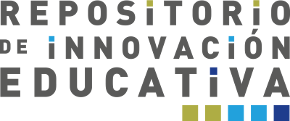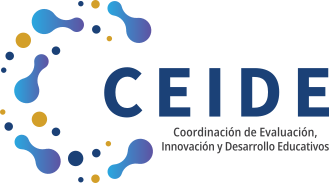Por favor, use este identificador para citar o enlazar este ítem:
https://www.innovacioneducativa.unam.mx:8443/jspui/handle/123456789/4347Registro completo de metadatos
| Campo DC | Valor | Lengua/Idioma |
|---|---|---|
| dc.contributor.author | Jaramillo Urrutia, Ignacio | |
| dc.date.accessioned | 2020-03-02T16:06:07Z | - |
| dc.date.available | 2020-03-02T16:06:07Z | - |
| dc.date.created | 2015-08 | |
| dc.date.issued | 2015 | |
| dc.identifier.issn | 1665-2673 | |
| dc.identifier.uri | http://132.248.161.133:8080/jspui/handle/123456789/4347 | - |
| dc.description.abstract | The present article presents the final report of the results of the exploratory research project "Visual strategies applied in online courses and their impact on meaningful learning in adult students." The objective of the research was centered on determining the degree to which a visual strategy applied in online courses positively or negatively affects meaningful learning in adult students. To this end, theories of meaningful learning and the conceptual maps of Joseph Novak and David Ausubel, as well as Jorge Méndez's didactic functions and visual markers, were applied to the design of a rapid prototype of online courses. As an object of field analysis, an online course was taken on the Design of Learning Environments by Uniminuto, particularly the final unit called the Future of Educational Informatics. The sample: 12 adult students. The research question: How to design, plan and apply a visual strategy that considers didactic functions and image markers, theories of meaningful learning, the representation of knowledge through conceptual maps and the illustration of facts that adequately combine the use of direct perception, through evocation, and through representation, in online courses, promotes meaningful learning in adult students? The results: The design of a single strategy based on visual representations in online courses does not guarantee that the student learns meaningfully if his or her learning style is not taken into consideration. | |
| dc.language | es | |
| dc.relation.ispartof | SciELO México | |
| dc.rights | Derechos reservados | |
| dc.source | Innovación educativa (México, DF), 15(68):49-72 | |
| dc.title | El mapa conceptual como estructura de representación de conocimiento en cursos virtuales y su impacto en el aprendizaje visual de estudiantes adultos | |
| dc.type | Artículo | |
| dcterms.bibliographicCitation | Jaramillo Urrutia, Ignacio (2015). El mapa conceptual como estructura de representación de conocimiento en cursos virtuales y su impacto en el aprendizaje visual de estudiantes adultos.Innovación educativa (México, DF), 15(68):49-72. Disponible en: http://www.scielo.org.mx/scielo.php?script=sci_arttext&pid=S1665-26732015000200005&lang=pt | |
| dc.identifier.sinne | SCI64 | |
| dc.identifier.url | http://www.scielo.org.mx/pdf/ie/v15n68/v15n68a5.pdf | |
| dc.subject.keywords | aprendizaje electrónico | |
| dc.subject.keywords | aprendizaje en línea | |
| dc.subject.keywords | aprendizaje significativo | |
| dc.subject.keywords | Estrategias visuales | |
| dc.subject.keywords | mapas conceptuales | |
| Aparece en las colecciones: | Artículos científicos y académicos | |
Ficheros en este ítem:
No hay ficheros asociados a este ítem.
Los ítems de DSpace están protegidos por copyright, con todos los derechos reservados, a menos que se indique lo contrario.


